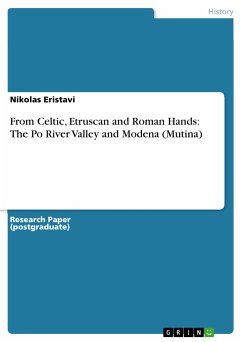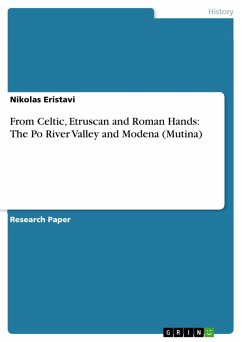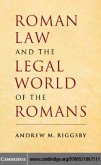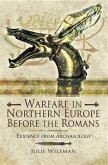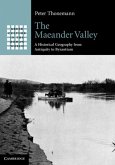Research Paper (postgraduate) from the year 2010 in the subject History - World History - Early and Ancient History, grade: 90, University of San Francisco, course: Roman History, language: English, abstract: In the early history of the Italian peninsula, as its territories were being settled, the lands farmed, and animals domesticated, the population was relatively low and spread far across its mountains, valleys and along the rivers. Despite the modest beginnings in the era of pre-history, as settlements joined together and tribes grew and founded villages and towns, the Italian peninsula became a more lively and interactive arena in the European landscape. Not as historically active or significant until the first millennia BC, the area of the Po River Valley, where the modern day city of Modena stands, became a hotbed for culture clashes and military conflicts. Empire builders, traders, soldiers, farmers and pastoralists all came through this wooded region of the Italian peninsula and through the walls of what once was known as Mutina and today as Modena. The city of Modena in the Po River Valley on the Italian Peninsula has been blessed with a rich history of Etruscan settlement, Celtic influence, and Roman domination as it was a decisive economic and military location for all three conquest-centered cultures that tread through its boundaries. [...]

